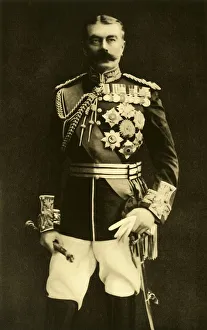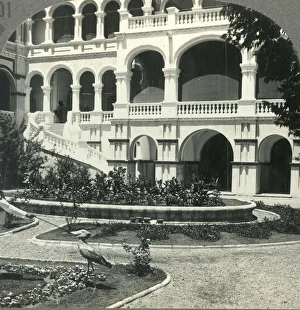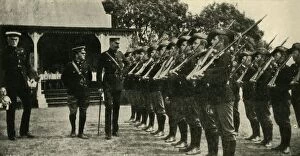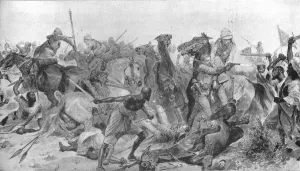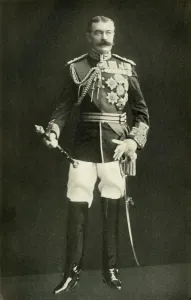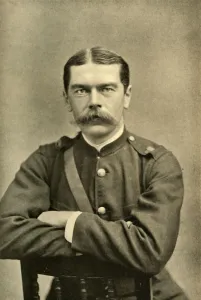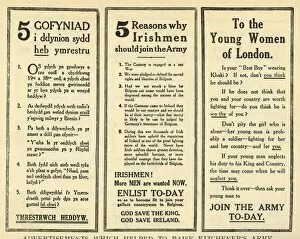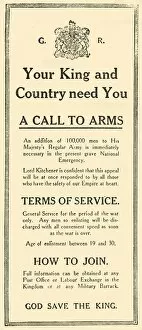Horatio Herbert Collection
Horatio Herbert, a name that resonates with power and military prowess. Born in 1850, he would go on to become one of the most influential figures in British history
All Professionally Made to Order for Quick Shipping
Horatio Herbert, a name that resonates with power and military prowess. Born in 1850, he would go on to become one of the most influential figures in British history. Known as Lord Kitchener of Khartoum, his legacy is etched into the annals of time. From an early age, Horatio displayed exceptional leadership skills and a thirst for adventure. His journey began in 1883 when he was appointed Governor-General of Eastern Sudan. It was during this time that he faced one of his greatest challenges - the Battle of Omdurman. In 1898, Horatio led his troops against the treacherous Burghers who had set fire to their own farmhouses. The image captured by Richard Caton Woodville II immortalizes this momentous event - a testament to Horatio's unwavering determination and strategic brilliance. But it was not just on the battlefield where Lord Kitchener left his mark. In 1910, Earl Kitchener took charge as Secretary of State for War, revolutionizing Britain's military infrastructure. Bassano Ltd's portrait from that era captures the essence of a man whose mere presence commanded respect and admiration. Throughout his career, Horatio Herbert remained dedicated to expanding British influence across continents. F de Harnen's depiction showcases surrendered Boers eager to join Kitcheners' National Scouts - a testament to their trust in his leadership. Lord Kitchener's conquests extended far beyond Africa; even Australia felt his impact during World War I. Unknown photographer's snapshot shows him reviewing Australian cadets before they embarked on their noble mission - another chapter written by Kitcheners' hand. The battles may have been won under Lord Kitchener's command but it was through diplomacy that lasting peace could be achieved. The Sirdars Palace engraving reminds us both General Gordon’s tragic death site and the Shoebill Stork symbolizing the delicate balance between power and harmony.


